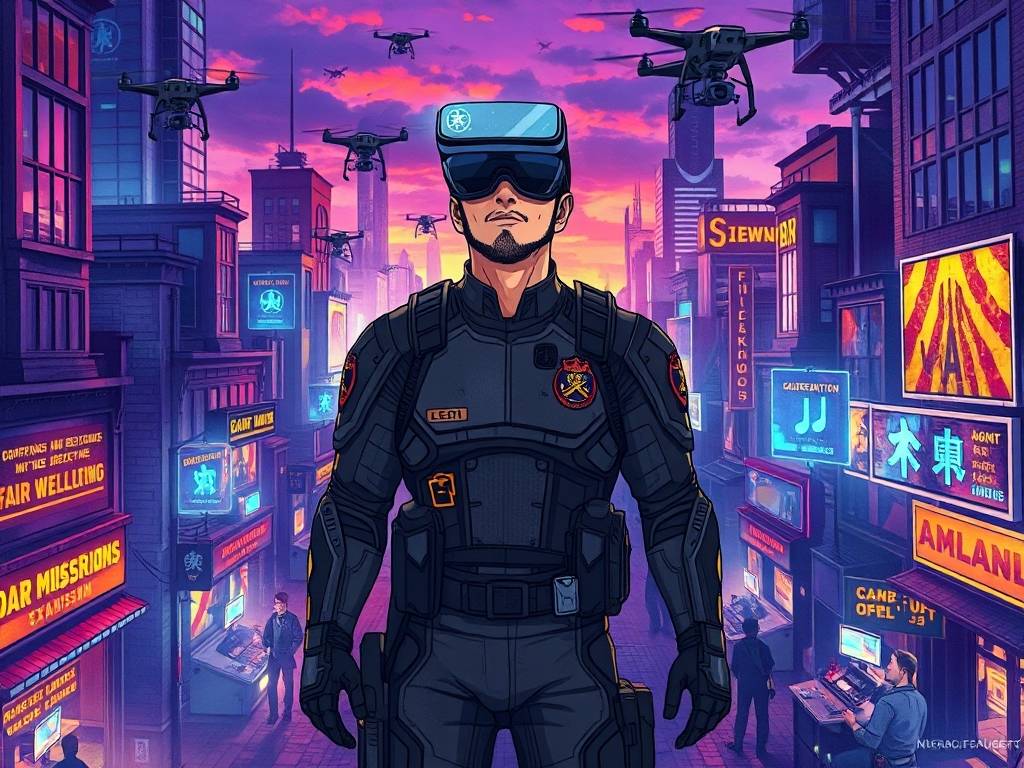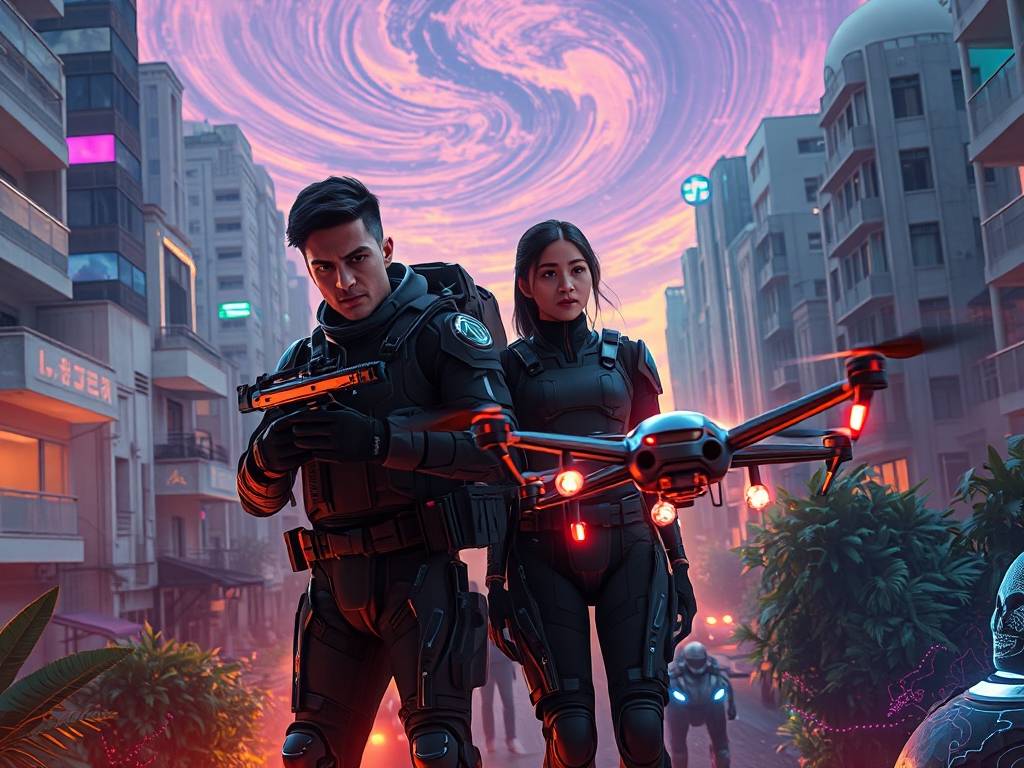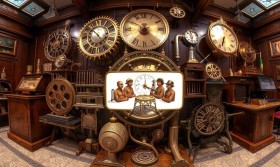Justice Reimagined: The "Fair Missions" Expansion for Justice Simulator VR
The virtual reality landscape has long been a playground for fantastical adventures and heart-pounding shooters, but a new genre is emerging: the ethical simulator. At the forefront is Justice Simulator VR, a groundbreaking title that dared to ask a difficult question: what does it truly feel like to wield the power of judgment? Its initial success proved there was a hungry audience for experiences that challenged their moral compass rather than just their reflexes. Now, the developers are pushing the boundaries even further with the "Fair Missions" expansion, a profound and meticulously crafted add-on that moves beyond the courtroom to explore the entire ecosystem of justice, from the gritty streets to the sterile evidence labs.
The core game excelled at placing players in the judge's robe, presenting them with complex cases where the right verdict was never black and white. "Fair Missions" deconstructs that very robe, thread by thread, by allowing players to experience the same case from three entirely new perspectives: the Field Investigator, the Public Defender, and the Community Advocate. This tripartite structure is the expansion's masterstroke, arguing that fairness isn't a single decision but a process—a chain of events where integrity must be maintained at every link.

As the Field Investigator, the VR experience becomes a tense, procedural drama. Equipped with a forensic scanner, evidence bags, and a keen eye, you are dispatched to crime scenes. The "fairness" here is in the meticulous, unbiased collection of facts. Did you interview the agitated witness on the periphery, or did you dismiss them because their story contradicted the initial, more convenient testimony? The VR mechanics brilliantly emphasize the weight of this role. Physically crouching to examine a bullet casing under a cabinet, using your virtual gloves to dust for fingerprints on a window frame, and logging every item into the evidence chain—these actions feel impactful. The expansion introduces a "Confirmation Bias" alert system, where your HUD might subtly highlight a piece of evidence that aligns with a preliminary theory. Ignoring this alert to conduct a truly thorough investigation is key to building a fair case. A missed clue in this phase can catastrophically warp the course of justice later on.
Once the evidence is collected, you step into the worn-out shoes of the Public Defender. This is where "Fair Missions" delivers its most emotionally potent and humbling content. Your office is a cramped, overstacked room; your client is often desperate and distrustful. The fairness here is about advocacy against overwhelming odds. You must sift through the evidence file (the very one you might have compiled as the Investigator) to find inconsistencies, procedural errors, or mitigating circumstances. Meeting your client in a secure VR visitation room, you have to use active listening and empathy to build a relationship and uncover truths they might be too ashamed or fearful to share initially. The game forces you to manage overwhelming caseloads and limited resources, mirroring the real-world pressures of public defense. Do you spend your limited time on a client who seems guilty but might have had their rights violated, or on another who has a stronger chance of an acquittal? There are no easy answers, only difficult, soul-searching choices that highlight the immense burden of ensuring every person receives a competent defense.
The final perspective, the Community Advocate, is the expansion's most innovative and forward-thinking. This role takes place after the verdict is rendered. As an advocate, you work with formerly incarcerated individuals, helping them reintegrate into society. The mission of fairness is about restoration and breaking the cycle of recidivism. You help your clients navigate bureaucratic nightmares to find housing, secure job interviews, and access therapy. Using the VR headset, you might accompany them on a nerve-wracking virtual job interview simulation or help them practice responses to the dreaded "Have you ever been convicted of a felony?" question. This phase powerfully demonstrates that a verdict is not an endpoint. True justice requires support and pathways to redemption, challenging the player to maintain their compassion long after the gavel has fallen.

The brilliance of "Fair Missions" lies in its interconnectedness. The choices you make in one role directly affect the experience in another. A sloppy investigation as the Field Investigator creates a nightmare scenario for the Public Defender. A successful advocacy story as the Defender makes the Community Advocate's job a story of hope rather than despair. This creates an incredibly high replay value, as players will want to see how different approaches ripple through the entire system.
Ultimately, the "Fair Missions" expansion is more than just new content; it is a vital thesis on justice. It argues that fairness is not a passive state but an active, often arduous practice. It requires the diligence of an investigator, the passion of a defender, and the enduring compassion of an advocate. By immersing players in this full spectrum, Justice Simulator VR: Fair Missions ceases to be just a game and becomes a powerful empathy engine, fostering a deeper, more nuanced understanding of the fragile structures that uphold the principle of justice for all.


















